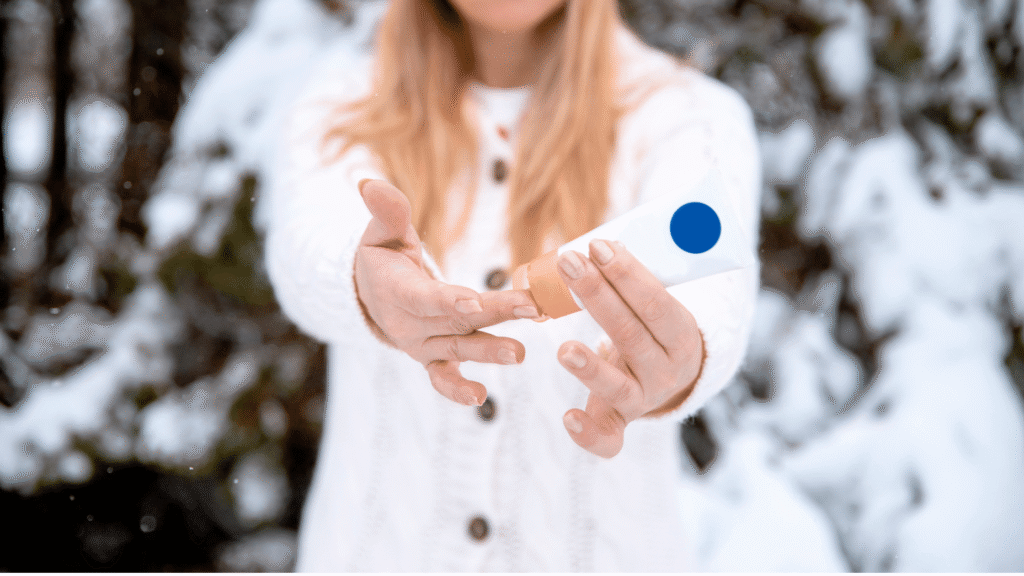As winter sets in, the cold weather, dry air, and indoor heating can all affect your skin. These conditions often strip moisture from the skin, leaving it feeling dry, rough, and tight. Many people also experience increased itchiness and irritation during this time.
Winter dryness and itching are common, but they don’t have to be part of your season. With a few simple changes to your skincare routine, you can protect your skin from the harsh effects of winter. Hydration, gentle cleansing, and regular moisturizing play an important role in keeping your skin healthy and comfortable.
In this article, you’ll find helpful tips and easy remedies to care for your skin in colder months. From choosing the right products to adjusting daily habits, these strategies can help you maintain soft, smooth skin all winter long. With the right approach, you can enjoy the season without the discomfort of dry or irritated skin.
Why Winter Causes Dryness and Itching

Winter often causes dry and uncomfortable skin due to cold air, low humidity, and indoor heating. These environmental changes, along with the skin’s reduced ability to retain moisture, can lead to dryness, irritation, and increased sensitivity during the season.
Cold, Dry Air: In winter, the air outside becomes colder and holds less moisture, which can quickly lead to dry skin. This dry air draws moisture from your skin, making it more prone to dehydration and irritation. At the same time, indoor environments heated by central systems are also low in humidity, worsening the problem. The result is skin that feels tight, flaky, and uncomfortable. Without proper care, this dryness can become more severe and affect your skin’s natural barrier.
Low Humidity: Winter weather brings a drop in humidity levels, both outdoors and indoors. This lack of moisture in the air makes it harder for your skin to stay hydrated. When humidity is low, moisture evaporates quickly from the skin, causing dryness, cracking, and irritation. People with skin conditions like eczema or psoriasis may notice flare-ups during this time. Maintaining moisture becomes difficult, making a hydrating skincare routine essential to keep the skin healthy and to prevent worsening symptoms.
Heated Indoor Environments: While staying warm indoors is necessary in winter, heating systems like central heaters, space heaters, and fireplaces remove moisture from the air. This dry indoor air pulls water from the skin, leaving it dry and itchy. Prolonged exposure to heated environments can damage your skin’s natural barrier, leading to flaking, redness, or sensitivity. Using a humidifier and applying moisturizer regularly can help restore moisture and protect the skin from the effects of dry indoor air.
Hot Showers: Hot showers can feel relaxing in cold weather, but they often do more harm than good to your skin. The high temperature of the water removes your skin’s natural oils, which are essential for keeping it hydrated. As a result, your skin becomes dry, irritated, and more prone to damage. Hot water also weakens the skin’s barrier, making it harder to retain moisture. To protect your skin, it’s better to use warm water and limit shower time during winter.
Wind Exposure: Cold winter winds can be very harsh on the skin, especially on the face and hands, which are often exposed. Wind not only strips moisture from the skin but also damages its protective barrier. This can lead to redness, chapping, and irritation. Even short exposure to wind can make your skin feel rough and dry. Wearing scarves, gloves, and using rich moisturizers can help shield your skin from the damaging effects of wind and prevent discomfort.
Decreased Oil Production: In colder months, your skin produces less natural oil, which plays a vital role in keeping moisture locked in. This reduction in oil production makes it harder for the skin to stay hydrated and can cause it to feel tight, dry, or flaky. Without enough natural oils, your skin becomes more sensitive and vulnerable to damage from environmental factors. To help support your skin, it’s important to use products that replace lost moisture and strengthen the skin’s protective layer.
By understanding these factors, you can make adjustments to your skincare routine to combat the adverse effects of winter on your skin.
Winter Skincare Tips to Prevent Dryness and Itching
Hydration Is Key: Drink and Apply Moisture

To prevent winter dryness and itching, it’s important to keep your skin well-hydrated. Staying moisturized both inside and out helps maintain soft, healthy skin during cold weather. Drinking plenty of water and using a good moisturizer regularly can protect your skin from becoming dry, itchy, and uncomfortable.
Internal Hydration:
Drink Plenty of Water:
Staying well-hydrated during winter is just as important as it is in the summer, even though we often feel less thirsty in the cold. The cold, dry air can silently dehydrate your body and skin, making it important to drink enough water every day. Aim for at least 8 to 10 glasses daily to help your body function well and to keep your skin soft and smooth. Proper hydration supports skin elasticity, helps retain moisture, and prevents flakiness and tightness.
Consume Hydrating Foods:
Eating water-rich foods is another great way to boost your hydration from the inside. Fruits and vegetables like cucumbers, oranges, watermelon, strawberries, and celery contain high amounts of water and also provide important nutrients. Leafy greens such as spinach and kale not only add water but also antioxidants to your diet, helping your skin stay healthy and protected. These foods work together to support your skin’s natural moisture barrier during the winter.
Herbal Teas:
Drinking warm herbal teas is a comforting and effective way to stay hydrated in winter. Teas like chamomile, peppermint, and green tea not only provide needed fluids but also offer skin benefits. Many herbal teas contain antioxidants that help fight skin-damaging free radicals, reduce inflammation, and calm irritated skin. Including a few cups of herbal tea in your daily routine can help improve hydration and protect your skin from winter dryness.
Topical Hydration:
Invest in a Rich, Hydrating Moisturizer:
A good moisturizer is one of the most important parts of your winter skincare routine. In the colder months, your skin needs more help to stay soft and moisturized. Choose a thick, rich cream that contains ingredients known to deeply hydrate and protect the skin. Moisturizers with hyaluronic acid, glycerin, ceramides, shea butter, or squalane are especially effective. These ingredients work by drawing moisture into the skin and creating a barrier to prevent it from escaping. Using a high-quality moisturizer daily helps to keep your skin smooth, soft, and protected from harsh winter air.
Apply Moisturizer Right After Bathing:
Timing is important when applying moisturizer. The best time to use it is right after you take a shower or bath, when your skin is still slightly damp. Damp skin absorbs moisturizer better and helps trap the moisture your skin already has. After bathing, gently pat your skin with a towel—don’t rub it dry. Then, apply a rich, hydrating lotion or cream while your skin is still a bit moist. This seals in the moisture and helps prevent dryness throughout the day.
Night Creams:
Winter nights can be especially drying for your skin, so using a heavier moisturizer before bed can make a big difference. Night creams are usually thicker and more nourishing than daytime products, giving your skin time to heal and hydrate while you sleep. These creams often include extra ingredients that help repair the skin barrier and restore softness. Applying a night cream regularly helps reduce dryness, flakiness, and irritation, leaving your skin refreshed and healthier in the morning.
Avoid Hot Showers and Baths
Hot showers may feel comforting in winter, but they can damage your skin. Staying too long in hot water removes the skin’s natural oils, which are essential for keeping it hydrated and healthy. Without these oils, your skin becomes dry, itchy, and irritated. To protect your skin, use warm water and limit your shower time.
What to do instead:
Opt for Lukewarm Water:
Instead of hot water, try using lukewarm water for your showers and baths. Lukewarm water is much gentler on the skin and helps protect the natural oils that keep your skin moisturized. Hot water can quickly dry out the skin by removing these protective oils. By using water that’s just warm enough, you can still stay comfortable without damaging your skin’s moisture barrier. This small change can make a big difference in keeping your skin soft and healthy during winter.
Shorten Your Showers:
Long, hot showers might feel relaxing, especially in cold weather, but they can lead to extra dryness. The longer your skin is exposed to water—especially hot water—the more it loses moisture. Try to keep your showers short, ideally under 10 minutes. Reducing the time you spend in the shower helps your skin hold onto its natural oils, which are essential for staying hydrated. Limiting shower time is a simple way to prevent dryness and irritation during the winter.
Use a Gentle, Moisturizing Cleanser:
The type of soap or body wash you use also matters during the winter. Harsh soaps with strong fragrances or chemicals can strip away moisture and irritate sensitive skin. Look for creamy, gentle cleansers that are made to add hydration while they clean. Ingredients like glycerin, shea butter, or coconut oil are great for winter because they help soothe and nourish dry skin. Using a moisturizing cleanser helps maintain your skin’s softness and prevents tight, flaky skin.
Use a Humidifier to Restore Moisture to the Air
Using a humidifier is an effective way to prevent dry skin in winter. It adds moisture to the air, helping to keep your skin hydrated and protected from the dry indoor air caused by heating systems. This simple addition can help maintain your skin’s moisture and prevent dehydration.

Why You Need a Humidifier:
Counteracts Dry Air:
Indoor heating systems, which are essential for staying warm during winter, can lower the humidity in the air, making it harder for your skin to retain moisture. This dry air can cause your skin to feel tight, dry, and itchy. By using a humidifier, you can increase the moisture levels in your home, preventing the air from further dehydrating your skin. This added humidity helps keep your skin soft and hydrated, reducing dryness and irritation caused by indoor heating.
Helps Maintain Skin’s Hydration:
A humidifier works to maintain optimal humidity levels in your home, typically between 30% and 50%. These balanced levels help your skin maintain its natural moisture. When the air is properly humidified, your skin is less likely to lose hydration, which means you’ll notice your skin feeling softer, smoother, and more moisturized. By maintaining moisture levels in the air, a humidifier helps your skin stay healthy and reduces the likelihood of dryness and discomfort during the winter months.
Improves Overall Comfort:
The dry indoor air caused by heating not only affects your skin but can also lead to other uncomfortable symptoms, such as dry eyes, throat irritation, and chapped lips. A humidifier helps alleviate these issues by adding moisture to the air, making it easier to breathe and reducing irritation in the eyes and throat. Using a humidifier not only improves skin hydration but also enhances your overall comfort, especially during the colder months when indoor air tends to be drier.
Make sure to clean your humidifier regularly to avoid the buildup of bacteria and mold, which can cause further skin irritation.
Choose the Right Skincare Products
The skincare products you choose are key to preventing winter dryness. During colder months, it’s essential to switch to products that offer added hydration, nourishment, and protection. These products help your skin stay moisturized and shield it from the harsh effects of cold, dry air.
Key Considerations When Choosing Skincare Products:
Moisturizing Ingredients:
When selecting skincare products for winter, look for those that contain humectants like glycerin and hyaluronic acid. These ingredients draw moisture from the air into the skin, helping to keep it hydrated. In addition, choose products with emollients like ceramides, squalane, and lanolin. These ingredients help lock moisture into the skin, forming a protective barrier that prevents moisture loss. This combination of humectants and emollients ensures that your skin stays hydrated and protected from the drying effects of cold air.
Avoid Harsh Ingredients:
During winter, it’s important to avoid skincare products that contain alcohol, artificial fragrances, or harsh exfoliants. These ingredients can strip the skin of its natural oils, leading to increased dryness and irritation. Instead, opt for products that are fragrance-free or labeled as hypoallergenic, especially if you have sensitive skin. Gentle, non-irritating products will help maintain your skin’s natural moisture and prevent further damage. Always read labels carefully and choose products formulated to soothe and protect your skin rather than aggravate it.
Exfoliate Gently:
Exfoliating your skin is essential for removing dead skin cells, which can cause flakiness, especially in the winter. However, over-exfoliating can damage your skin’s barrier and worsen dryness. To prevent this, choose gentle exfoliants such as lactic acid, glycolic acid, or enzymatic exfoliants, which are milder on the skin. These exfoliants help remove dead skin cells without stripping away moisture or causing irritation. Exfoliate no more than once or twice a week to keep your skin smooth and refreshed while preserving its natural moisture barrier.
Rich Oils for Extra Hydration:
Adding natural oils to your winter skincare routine can provide an additional layer of hydration. Oils such as jojoba oil, argan oil, and rosehip oil are excellent choices for replenishing moisture and restoring skin elasticity. These oils are rich in essential fatty acids and antioxidants, which help nourish the skin and improve its appearance. They also help form a barrier that locks in moisture, keeping your skin hydrated and supple. Applying a few drops of oil to your face or body can offer extra protection against the harsh winter weather.
Protect Your Skin from the Elements
Stepping outside in the cold winter air exposes your skin to harsh conditions that can cause dryness and irritation. The combination of wind, cold temperatures, and low humidity can leave your skin feeling tight, red, and itchy. These environmental factors strip moisture from your skin, making it more vulnerable to discomfort and damage during the winter months.

Winter Skincare Protection Tips:
Wear Gloves:
During the winter, your hands are particularly vulnerable to the elements, often becoming the first area to show signs of dryness and cracking. Wearing gloves when outdoors can provide a protective barrier against the cold air and wind, preventing your hands from becoming chapped. Choose gloves lined with soft, insulating materials to ensure that your hands remain warm and shielded from harsh conditions. Opting for gloves that fit well can also help maintain circulation, keeping your hands comfortable and hydrated.
Use a Protective Lip Balm:
Cold, dry air can quickly lead to chapped and cracked lips. To prevent this, keep a nourishing lip balm on hand, especially one that contains hydrating ingredients such as beeswax, shea butter, and vitamin E. These ingredients provide deep moisture and form a protective layer to keep your lips soft and smooth. Apply lip balm generously throughout the day, particularly before heading outdoors, to keep your lips hydrated and shielded from the drying effects of cold temperatures.
Layer Your Clothing:
Wind and low temperatures can irritate your skin, especially on exposed areas like the face, neck, and hands. To protect your skin from the harsh elements, layer your clothing strategically. Wear scarves to shield your neck, hats to cover your head, and coats to keep your body warm. Proper layering traps heat and prevents moisture loss while still allowing for ventilation to avoid sweating, which could cause irritation. Layering provides essential protection against the cold, ensuring your skin stays comfortable and safe.
Sunscreen in Winter:
It’s important to remember that UV rays can still harm your skin during the winter months, particularly when sunlight is reflected off snow or ice. To protect your skin from potential damage, apply a broad-spectrum sunscreen with an SPF of at least 30 daily, even when it’s cloudy. Be sure to focus on exposed areas such as your face, neck, and hands, which are more susceptible to sunburn. This simple step helps safeguard your skin from harmful UV exposure, ensuring it stays healthy throughout the winter season.
Conclusion
Winter can be a challenging time for your skin, but with the right skincare routine and habits, you can keep dryness and itching at bay. By staying hydrated, moisturizing regularly, using a humidifier, choosing the right skincare products, and protecting your skin from the harsh winter elements, you can ensure that your skin stays soft, healthy, and nourished all season long.
Remember, winter skin care is about creating a routine that hydrates, repairs, and protects your skin, so don’t forget to adjust your skincare habits to meet the demands of the colder months. Taking these simple but effective steps will help you keep your skin comfortable, smooth, and glowing throughout the winter season.
FAQs
- Why does my skin get so dry and itchy in the winter ?
In the winter, the cold air outside and the dry heat indoors can really take a toll on your skin. The dry, low humidity air strips moisture from your skin, and during the colder months, your skin also produces less oil to help lock in that moisture. On top of that, wind exposure can irritate your skin, especially on your face and hands, leading to dryness, flaking, and itching. - What are the best ingredients to look for in winter skincare products ?
When choosing skincare products for winter, it’s important to go for ingredients that hydrate and protect the skin. Look for things like hyaluronic acid, which helps your skin hold onto moisture, and glycerin, which draws moisture into the skin. Ceramides are great for strengthening your skin’s natural barrier, and rich ingredients like shea butter and squalane help lock in moisture and prevent dryness. - Can hot showers cause skin dryness ?
Yes, hot showers might feel soothing, but they can actually dry out your skin. Hot water strips away your skin’s natural oils, which are essential for keeping moisture in. To avoid dryness, try to take lukewarm showers instead and keep them short, around 10 minutes or so. - How often should I apply moisturizer in the winter ?
During winter, you should be applying moisturizer at least twice a day—once in the morning and once at night before bed. It’s also a good idea to apply it right after you shower, while your skin is still damp. This helps lock in the moisture. If your skin feels dry throughout the day, don’t hesitate to reapply whenever you need that extra hydration. - Is a humidifier helpful for preventing winter dryness ?
Definitely! A humidifier is a great tool for keeping your skin hydrated in the winter. Indoor heating systems can make the air in your home really dry, which leads to moisture loss in your skin. By adding moisture back into the air with a humidifier, you can help prevent your skin from getting dry and irritated, especially while you’re sleeping at night.


